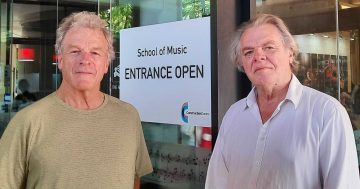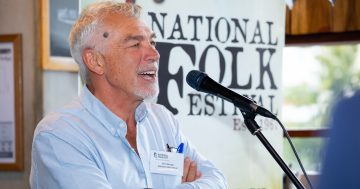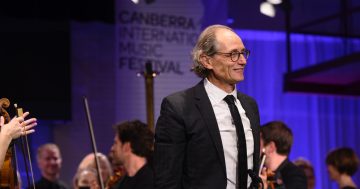
Earlier this year, my business partner and I attempted to produce a small opera in Canberra. Having been buoyed by a successful seasons in Hong Kong, we thought we’d bring it to the place we love and call home.
It was impossible. The lack of suitable venues, coupled with an inflexible attitude from government-funded arts bureaucrats, left us rather disheartened. But these problems were not insurmountable, the killer blow was that we simply couldn’t find the musicians, so we settled for a smaller touring show – which only recently had its closing night in China.
Canberra is no longer the wellspring of talented, budding, classically trained musicians that it used to be.
The School of Music is no longer a home for Australia’s great musicians, and many of Canberra’s classical greats now live in poverty, exile, and isolation.
After interviewing musicians for this story, I have renewed and grave concerns for the mental health of many of Canberra’s classical musicians.
School of Music enrolment numbers have plummeted over the past four years, and as someone who works in the industry I can say with authority that talented students are encouraged by their teachers to take their tertiary studies outside of the capital. Remaining in Canberra for a viable career is out of the question.
Just what is the Australian National University’s issue with music? I am not the first to have asked that question over the past seven years.
In 2012 we were informed by the ANU management that the School of Music faced an urgent and unavoidable need for curriculum and administrative reform. Staff, now former staff, at the Canberra School of Music were told that federal funding of universities left conservatoriums around the country in financial peril. The ANU also forced the school to reconsider the function of the Bachelor of Music degree from one that supported elite musicians to one that supported people who wanted to refine the three-chord riffs that might come in handy as a primary school teacher or whilst on holidays from a successful career in law or medicine.
The public outcry was considerable, and institutional reform of any kind is never easy. It is widely acknowledged that the incoming Head of School in 2012, Professor Peter Tregear (pictured), made good on his promise to establish a renewed self-confidence and financial stability, as well as community confidence in the School. A series of world-class appointments were announced, and by 2014 the School had become the leading recipient of research income for music in the country. Its students were again winning national performance prizes, and the School’s endowment was again attracting significant donor support.
This year, however, the School has witnessed a spectacular haemorrhaging of
professional and academic staff, including Professor Tregear himself.
How has this been allowed to happen? And who is to be held to account? Who are the senior university managers whose job is, ultimately, to care for the disciplines they are entrusted to deliver, and the students, staff, donors, and the wider community they are meant to serve?
The handling of the first round of changes in 2012 by the ANU elite management was already ripe for criticism. World-class Canberra musicians lost their jobs, and the case prosecuted by the ANU appeared to be poorly thought through and nothing short of a public relations disaster. Perhaps this is why every time a potential controversy arises regarding the School of Music, ANU staff are given an instruction to not speak with the media or public.
It was surely the School of Music’s achievement under Professor Tregear to be able to recover so quickly. And it is surely a matter of renewed and arguably greater concern that the ANU seems to have not been willing, or unable, to capitalise on that achievement.
The ANU must answer to the people of Canberra on this matter, but if we are to ever re-establish the cultural integrity of the Australian Capital Territory, a political process must occur.
The university has failed the School of Music, and therefore the people of Canberra and Australia.
The Canberra School of Music can only fulfil its purpose if it stands as an independent institution, unchained from the economic fundamentalism imposed by the ANU.
It is time for Canberra to reclaim the Canberra School of Music.




















